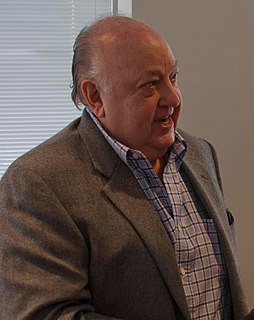A Quote by Henry Giroux
The ideology of neoliberalism, with its privatization, its deregulation, its emphasis on consumption, its elimination of basically apparatuses that can provide alternative points of view, has been so powerful and so normalized.
Related Quotes
Where neoliberalism thrives is in having done something that we haven't seen before. There is a merging of culture, politics, and power under neoliberalism that's unprecedented. They control the cultural apparatuses. And what I mean by "cultural apparatuses" is all those institutions that are about the production of knowledge, values, dispositions, and subjectivities. They control them.
Neoliberalism became the leading economic ideology in the U.S. and in the U.K. during Ronald Reagan's and Margaret Thatcher's mandates. In this way, the leaders of the free world offered a viable solution to the economic crisis at the time: competition, deregulation, outsourcing, to name a few buzz words that have since become common place.
Whole ideology of consumption almost to the point of religion. Whether it's the consumption of entertainment or the consumption around buying things, we're so caught up with our appetites that we don't have a clear distinction about what we need and what we just want. Plus, the decline of trade unions is a factor. When you have powerful unions, you have a working class that is politicized.
By the time I got to school, I had already read a couple hundred books. I knew in the first grade that they were lying to me because I had already been exposed to other points of view. School is basically about one point of view -- the one the teacher has or the textbooks have. They don't like the idea of having different points of view, so it was a battle. Of course I would pipe up with my five-year-old voice.
The conservative goal has been the Third Worldization of the United States: an increasingly underemployed, lower-wage work-force; a small but growing moneyed class that pays almost no taxes; the privatization or elimination of human services; the elimination of public education for low-income people; the easing of restrictions against child labor; the exporting of industries and jobs to low-wage, free-trade countries; the breaking of labor unions; and the elimination of occupational safety and environmental controls and regulations.
Time pressures are a reality of business life that cannot be eliminated entirely and that even can create a beneficial focus at times, it can be powerful to set aside discrete occasions where individuals are invited to step back, to look at their projects from different vantages, to consider input not usually examined, and so on. This again encourages folks to express alternative points of view.
The difference between neoliberalism and fascism or Nazism or other forms of totalitarianism is that it takes questions of ideology seriously. It takes the educational sphere seriously, and it tells people there's no alternative; that market freedom is really freedom in general; that a rabid kind of individualism is all that matters; that as Ayn Rand used to say, "self interest is the ultimate virtue" - and people believe this stuff. Because they have no other discourse.































